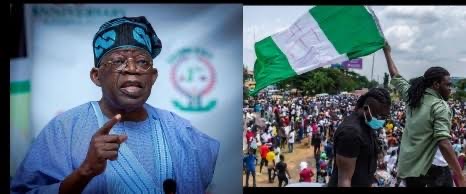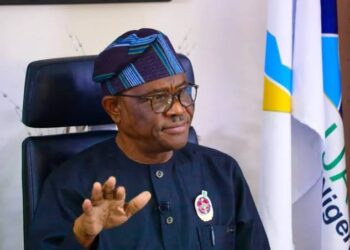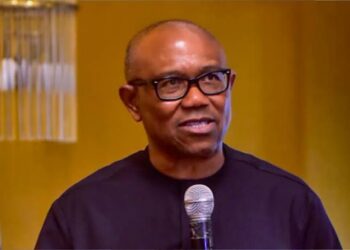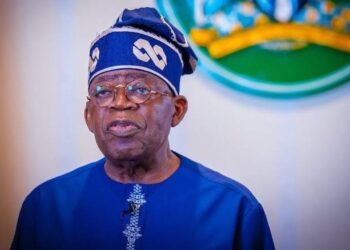Protests by Nigerian youth on Thursday forced the majority of the population to stay at home across the country.
Telecommunications companies, banks, petrol stations, shops, shopping centres, schools, and large markets remained closed. Several of them stayed away for fear of a repeat of the #EndSARS 2020 incident, in which dozens were killed and shops looted.
Lagos and S’ West Incident:
Commercial activities were paralysed across Lagos. International airlines were among the few to operate direct flights to and from Nigeria. Shops in Ejigbo and Isolo districts of Lagos closed by 4 pm as non-protesting traders stayed out.
Businesses in Ojota and Ikeja, Lagos, were closed. Protesters marched from under Ikeja Bridge to Freedom Park in Ojota to demonstrate against the high cost of living and hunger in Africa’s most populous country.
Youths under the aegis of the Coalition of Concerned Nigeria Citizens, in Osun State, stormed Osogbo, the Osun state capital, to express their dissatisfaction with Nigeria’s current governance.
“We are suffering and the pain is unbearable. Tinubu should look into all the policies that are affecting the poor and review them. One of the policies is the fuel subsidy that has been removed. You have removed the subsidy and the impact is not felt by the people. You are telling us to wait. Are we going to wait until everybody dies,” said Ajala Adetunji, coordinator of the coalition.
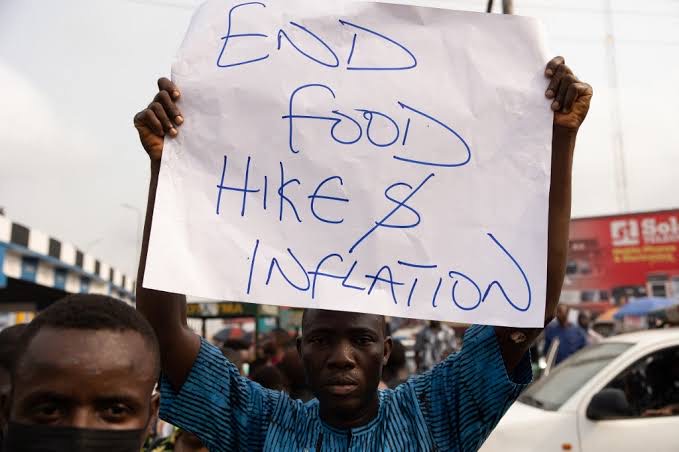
Businesses in Kwara were closed but some residents did not protest for fear of what might happen.
Clashes in Abuja and its Suburbs
Clashes broke out between protesters and security forces in front of the Federal Secretariat in Abuja on Thursday afternoon after they were denied entry to the MKO Abiola Stadium in Abuja.
At around 2 pm, protesters, mostly young people, waving floral branches, tried to enter the Secretariat.
An Emirates Security Force security officer manning the stadium told Business Day at the stadium, adding that the protesters had left the stadium’s entrance after being denied entry to the stadium and were on their way to the Federal Secretariat.
However, they encountered stiff resistance from security officials, mainly police and Civil Defence soldiers, who had blocked the Secretariat.
To disperse the angry protesters, police had to fire tear gas shells at them, which caused widespread chaos around the Secretariat and in the surrounding streets, forcing commuters to flee for their lives. Isolated shots were fired in the air.
Journalists’ investigations also revealed that businesses in Abuja suburbs, including Nyanya, Kubwa, Mararaba, and Kuje, were shut down as protesters began their demonstrations.
Most business owners in these areas stayed at home out of fear for their safety, fearing possible violence and looting.
Richard Ugo, a thrift ware dealer at Wuse Market, said he was staying at home out of safety concerns as there may not be customers there anyway.
“My life comes first before any business. I won’t open the market until I receive an alert that everything is calm,” he said.
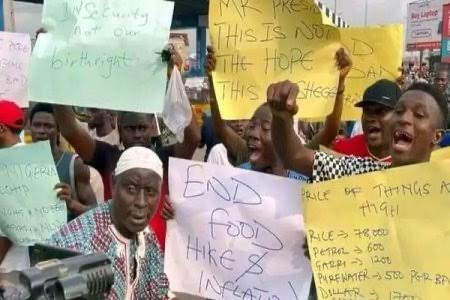
Emmanuel Nonye, an entrepreneur at Banex Plaza, said he was trying to open his business but was forced to lock up and go home as the entire square and surrounding streets were deserted.
In various states across the country, youths held up placards with slogans such as ‘#EndBadGovernance,’ ‘#We want fuel subsidy,’ and ‘Tinubu, make our lives better.’
However, the nationwide emergency protest took a violent turn towards the Nyanya axis in Abuja. What appeared peaceful in the early hours of Thursday morning escalated into violence, forcing residents and commuters to scramble to save their lives.
We heard that thugs had infiltrated the protest and attacked and damaged vehicles along the busy Keffi/Abuja road.
Journalists also noted that pro-Tinubu protesters held their own protest rallies in various parts of Abuja including the Tinubu/Shettima electoral office in the Central Business District of Abuja.
Violence in Kaduna, Niger, Nasarawa:
Three people were killed in Kaduna. One person was killed in Niger State. Violent protests also erupted in Lafia, the Nasarawa State capital, where a group of angry youths hijacked the protest and sparked violence.
The incident occurred on Thursday night when hoodlums burned tyres to block vehicular traffic on a highway in the city centre.
Only a joint team of the military, police, and other security forces was able to control the situation. Journalists learned that angry youths entered the A Division of the Nigerian Police and hurled stones at police officers.
Nasarawa State Police Spokesperson Ramhan Nansel confirmed the incident and said normalcy had returned to the state capital, Lafia, as of 7pm.
Kano Violence:
In Kano, hoodlums occupied protesters and looted warehouses, shops, and offices in the ancient city.
They looted and set fire to the Digital Innovation Park, which is scheduled to be inaugurated next week by the Minister of Communications, Innovation and Digital Economy, Bosun Tijani.
The hoodlums were also seen taking away items from people’s offices, including furniture, air conditioners, and metal signboards.e
Public infrastructure such as traffic lights, signboards, and government offices was attacked by the hoodlums and tyres were set on fire, attracting the attention of police and other security agencies.
The security agencies were overwhelmed by the hoodlums, who dragged away the items without much resistance.
“Sad to learn that our Digital Innovation Park in Kano slated for launch next week to support our technical talent accelerator (3MTT) has been set ablaze and looted by protesters. Alongside #3MTT, this building is set to host our buildathon holiday maker programme for secondary school kids starting next week. A slight setback for our journey to deepening our workforce for technology while creating job opportunities for the youth. Millions of Naira down the drain,” Tijani posted on his X handle on Thursday.


